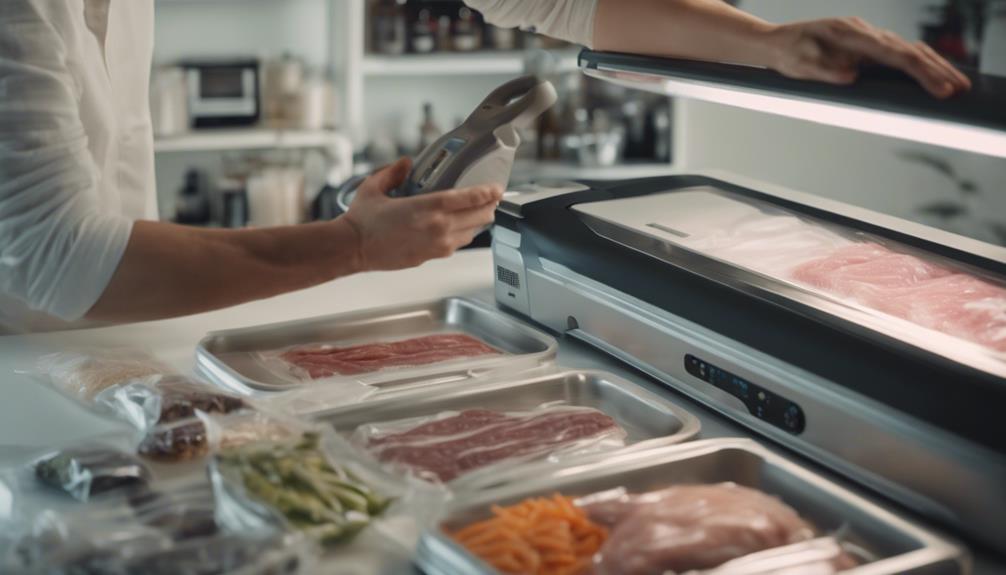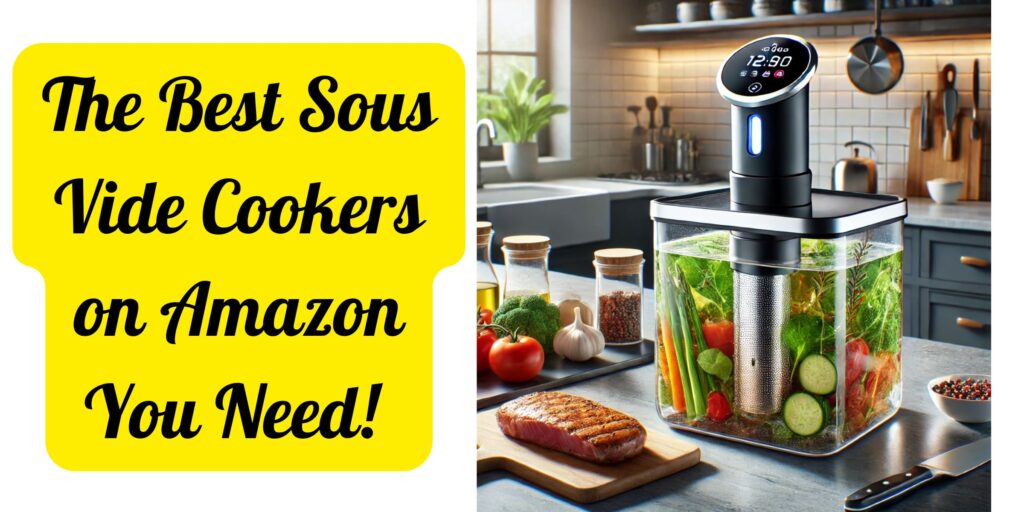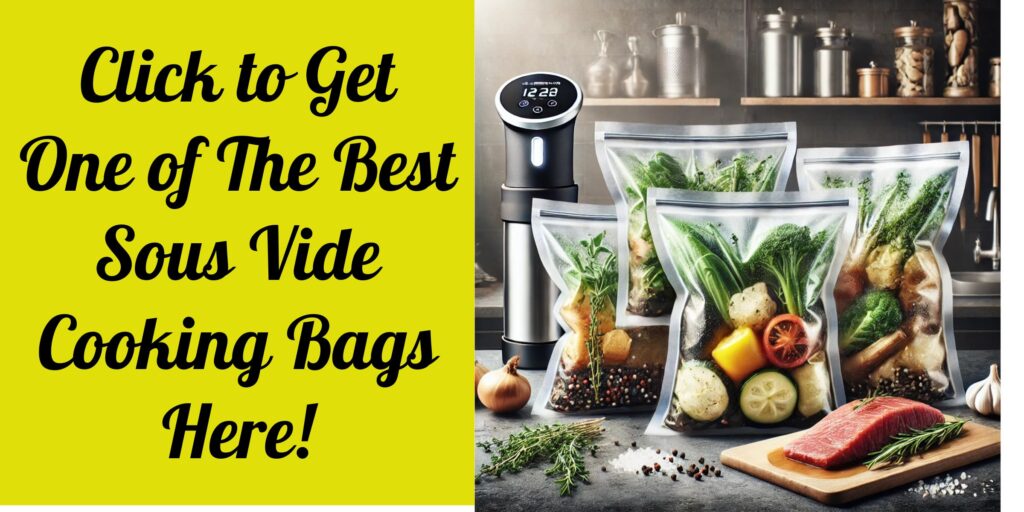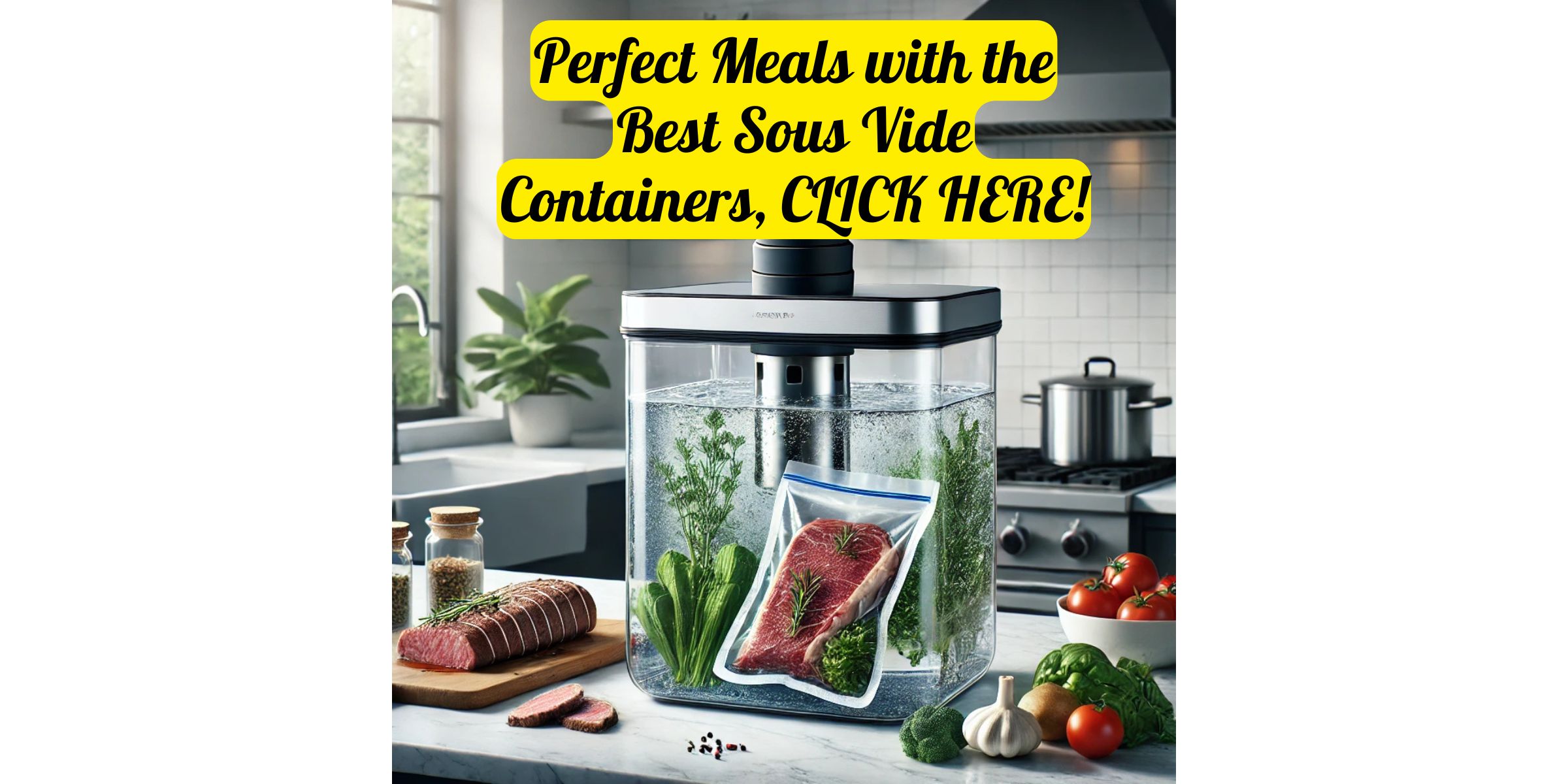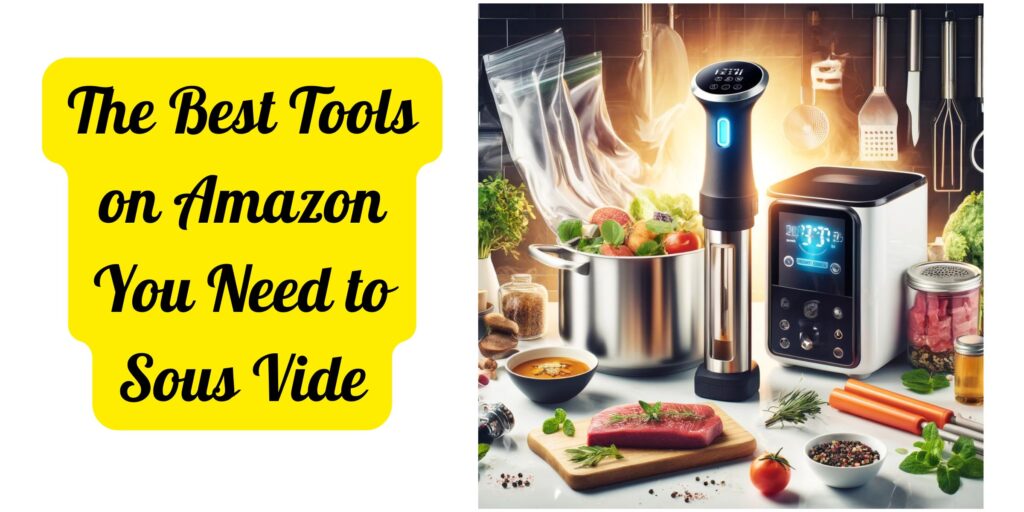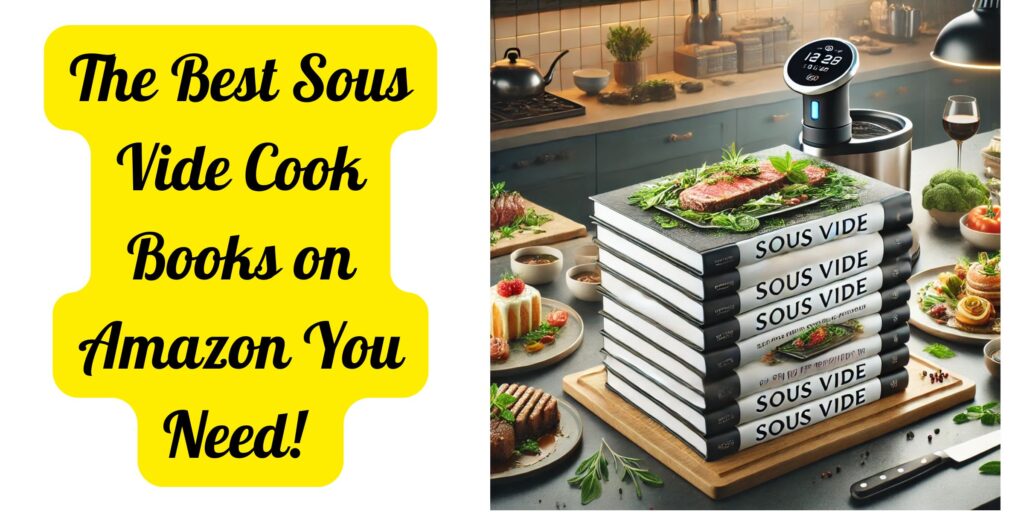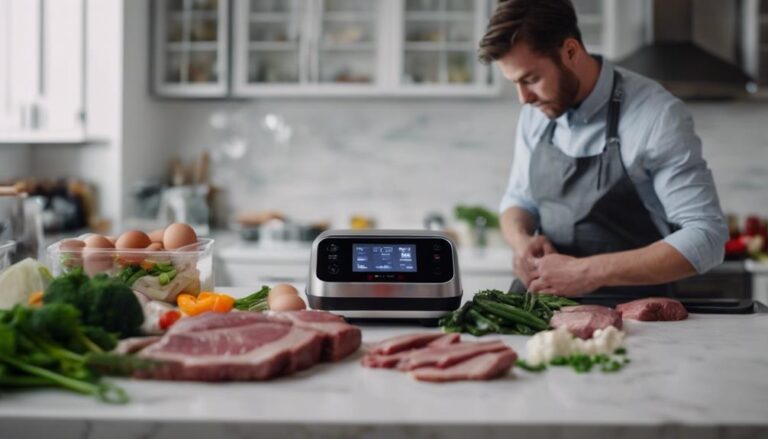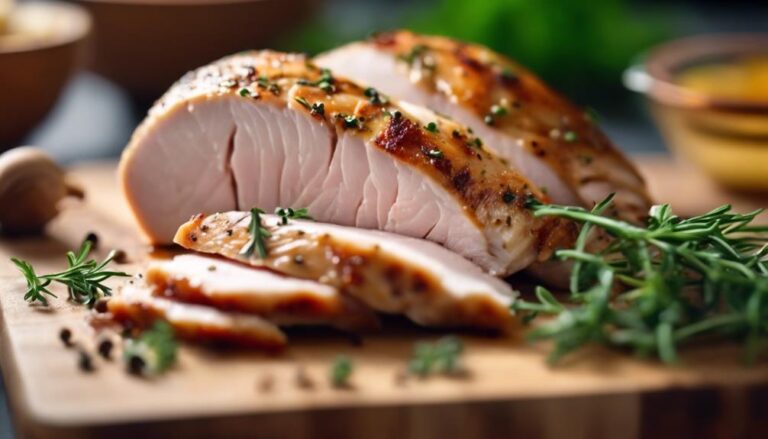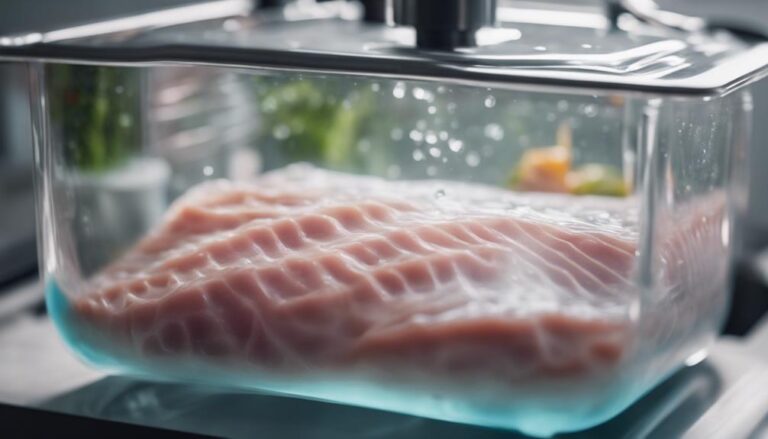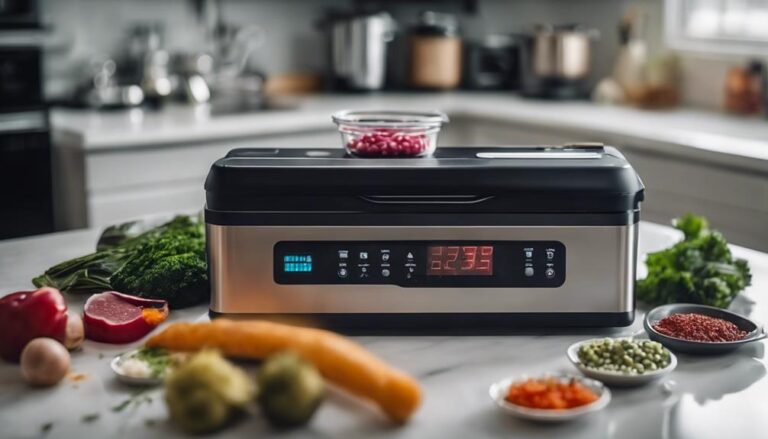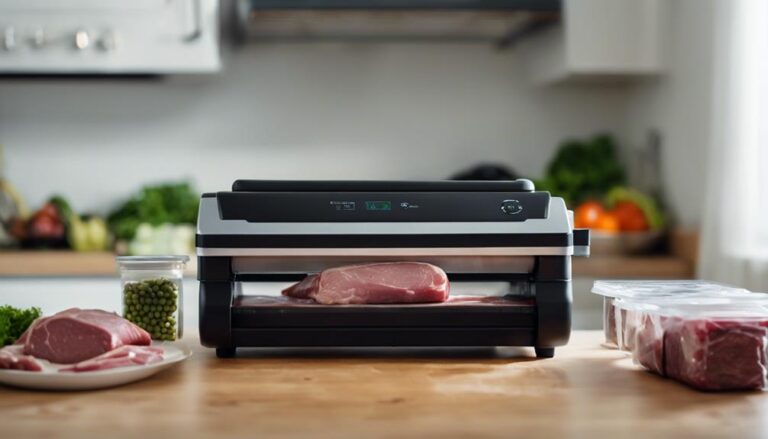Choosing the Right Vacuum Sealer: A Buyer’s Guide
When choosing a vacuum sealer, consider the type: handheld, chamber, or external. Thicker seal bands work best for meats, while thinner ones suit veggies. Evaluate workload and match it with the sealer's durability. Wide bands for long-term freezing, thin for quick use. Check out top models like Nesco VS-12 for precision or Mueller Austria for strong seals. Geryon is affordable with good performance. Remember to maintain the sealer by cleaning it regularly and checking seals. Want to discover more tips and details?
What You Will Learn Here
- Consider the type of vacuum sealer that suits your needs: handheld, chamber, or external.
- Evaluate seal band thickness based on food type: thicker for meats, thinner for veggies.
- Match workload to sealer capacity for efficiency and durability.
- Choose wide sealing bands for long-term freezing and thin bands for quick consumption.
- Look for features like portability, durability, and specific seal types for varied sealing needs.
Types of Vacuum Sealers
When choosing a vacuum sealer, understanding the types available can help you make an informed decision based on your needs and preferences.
Handheld vacuum sealers are convenient for quick sealing tasks and are usually battery-operated, making them perfect for on-the-go use. However, they might have less suction power compared to other types.
On the other hand, chamber vacuum sealers are heavy-duty machines known for their strong vacuum strength, making them ideal for sealing liquids without the risk of freezing.
External vacuum sealers, the most common type, strike a balance between performance, size, and price, catering to everyday needs. They work with pre-cut bags or bag rolls, offering versatility. Some external sealers even come with accessory ports for sealing jars or containers, enhancing their functionality for food preservation.
Understanding the capabilities of handheld, chamber, and external vacuum sealers can guide you in selecting the most suitable option for your sealing needs.
Factors to Consider
What factors should you consider when selecting a vacuum sealer for your needs?
To start with, consider the types of items you plan to seal. Thicker seal bands are recommended for meats, while thinner seal bands are more suitable for veggies and dried goods. Different seal types serve various purposes, so choose a sealer that aligns with your specific needs.
Additionally, evaluate the workload your sealer will handle based on how frequently you intend to use it. If you plan on long-term freezing, opt for a vacuum sealer with wide sealing bands. Conversely, if you anticipate quicker consumption of your sealed items, thinner seal lines will suffice.
Best Vacuum Sealers of 2024
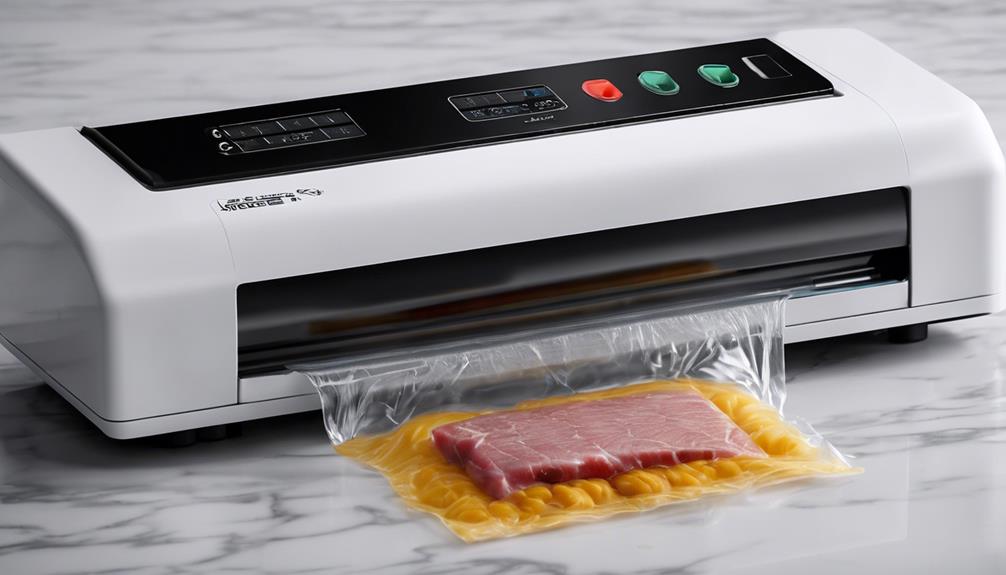
In the domain of vacuum sealers for 2024, the Nesco VS-12 stands out with its precise control settings and dual heat-seal feature. If you're looking for a high-quality vacuum sealer, consider the following options:
- Nesco VS-12 Vacuum Sealer: Offers precise control settings, a double heat-seal option, and a double vacuum pump for thorough air extraction.
- Mueller Austria Vacuum Sealer: Provides powerful suction, strong seals, and different sealing settings on a budget-friendly machine.
- Anova Culinary ANVS01 Vacuum Sealer: Compact design with precise vacuum control for sous vide cooking, compatible with reusable bags.
- Geryon Vacuum Sealer Machine: An affordable choice with decent performance, compact design, and includes a starter kit of bags.
Each of these vacuum sealers caters to various needs, from precise control settings to budget-friendly options suitable for sous vide cooking enthusiasts. Make your choice based on your specific requirements to make sure your food stays fresh and well-preserved.
Testing and Evaluation Process
To guarantee the dependability of our assessments, we rigorously tested and evaluated the vacuum sealers for their suction strength and sealing performance.
Our real-world testing included long-term tests to assess the durability of seals created by the vacuum sealers.
Throughout the testing process, we focused on external vacuum sealers, giving them preference over other types for their effectiveness.
This detailed evaluation ensured the credibility and accuracy of our results.
The guide underwent over 80 hours of research and testing by experts experienced in reviewing kitchen equipment.
Choosing the Right Features
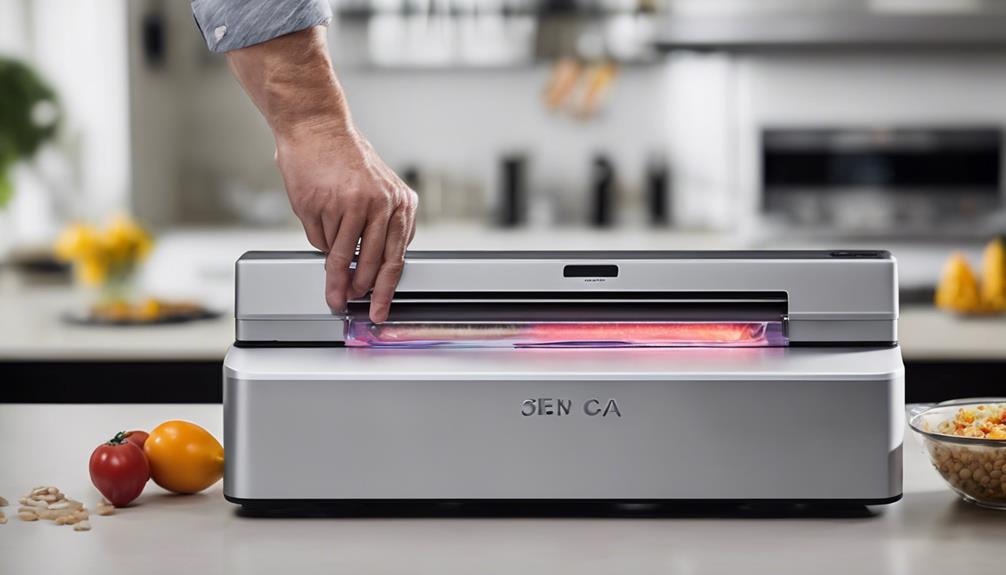
Consider the specific sealing strength required for various types of foods when selecting a vacuum sealer. To choose the right features that align with your needs, keep in mind the following:
- Seal Strength: Opt for thicker seal bands for meats and thinner bands for veggies and dried goods to guarantee ideal preservation.
- Specific Seal Types: Evaluate the type of seal needed based on the food purpose to enhance effectiveness.
- Frequency of Use: Select a vacuum sealer that matches your workload to guarantee long-term durability.
- Freezer Storage: Wide sealing bands are ideal for long-term freezing, while thinner seal lines are suitable for quick consumption.
When looking for a vacuum sealer, also consider features like portability and outdoor use if they're important to you. Features such as car adapters, extra-long cords, and sturdy construction can make a significant difference when using the sealer outdoors. Prioritize durability for long-term use and convenience for various sealing needs.
Care and Maintenance Tips
Regularly cleaning your vacuum sealer with a damp cloth is crucial for removing food residue and maintaining peak performance. Check the sealing gaskets regularly; replace them if they show signs of wear to guarantee a proper airtight seal.
Store your vacuum sealer in a clean, dry place away from moisture and extreme temperatures to extend its lifespan. Avoid overfilling the sealer bags to prevent strain on the machine and ensure efficient sealing.
Follow the manufacturer's guidelines for maintenance, like oiling the vacuum pump if necessary, to keep the sealer functioning smoothly and to extend its lifespan.
Frequently Asked Questions
What Features Should You Look for in a Vacuum Sealer?
When choosing a vacuum sealer, make sure it has adjustable suction strength, pulse control for delicate items, a wide sealing band for frozen foods, accessory ports for jars, a removable drip tray, and consider its overall durability.
Is It Better to Dry or Moist Vacuum Sealer?
When vacuum sealing, for moist foods, ensuring an airtight seal is key. Proper moisture control is essential for food preservation. This method helps prevent freezer burn, extends freshness, and aids in bulk packaging and meal prep.
What Are the Different Types of Vacuum Sealers?
When looking at different types of vacuum sealers, consider your needs. Budget options are great for home use. Portable models offer convenience. Commercial and industrial grade sealers are powerful. Choose automatic for ease. Seal for food preservation, sous vide, mason jars, wine bottles, and reuse bags.
Do All Vacuum Sealers Need Special Bags?
Yes, vacuum sealers require special bags for best air removal, seal quality, and freshness protection. These bags are designed with multiple layers, durability, and puncture resistance. Using regular bags may not provide the same results.
Conclusion
Now that you have learned about the various kinds of vacuum sealers, crucial factors to ponder, and the top choices available in 2024, you're well-prepared to make an informed decision.
Remember to test and assess the sealers before making a purchase, select the features that best fit your needs, and properly care for and maintain your vacuum sealer to guarantee its longevity and effectiveness.
Happy sealing!
